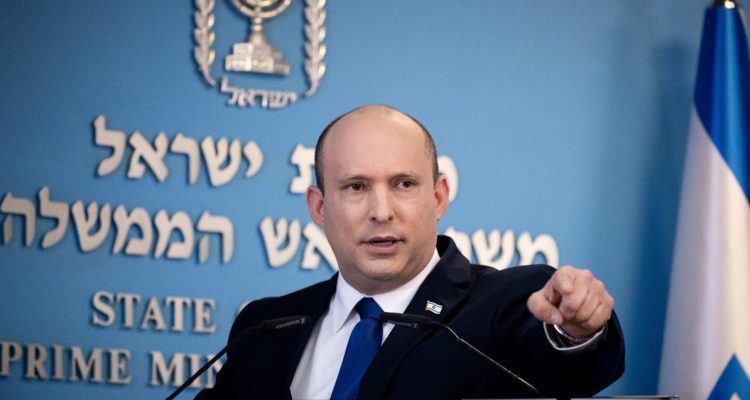Speaking ahead of the Yom Kippur holiday, the Israeli premier pledged to bring calm to Gaza and prosperity to the West Bank.
By Donna Rachel Edmunds, World Israel News and Gil Tanenbaum / TPS
Israeli Prime Minister Naftali Bennett has pledged that Israel will not allow Hamas to build up a stockpile of rockets or engage in endless wars under his watch.
Speaking to reporters from various networks ahead of the Yom Kippur high holiday, Bennett covered a range of security issues, including the threat from Hamas, and Palestinian statehood.
Discussing the threat from Hamas, Bennett told Channel 12: “Hamas is an organization that has jihad engraved on its flag and it intends to continue this thing. My mission – to give security to the citizens of Israel and in particular to the residents of the south.”
He continued: “We will not allow Hamas to accumulate more rockets, as happened with Hezbollah. I do not want operations or wars. The Defense Minister [Benny Gantz] undertook a move to regulate and long-term calm in Gaza. If it succeeds what good, if not – there are also alternatives.”
In the last few days Israel’s south has seen a number of rocket attacks from Gaza. Israelis in the region are unhappy that repeated attacks on the southern towns seem to be tolerated in a way that attacks on Tel Aviv or Jerusalem are not, causing a de facto two-tier policy in Israeli security.
In acknowledgement of this, Bennett has previously promise that “The law for Sderot (a city near Gaza) will be the same as the Law for Tel Aviv.”
Pushed on this by Kan News, Bennett responded: “First of all I suggest looking and understanding – we have enemies who want to destroy us, even before we were born as a country.”
He then mentioned the fact that a month before he took office, missiles were fired at Jerusalem and Tel Aviv, asking that matters be seen in proportion. “We are attacking back in Gaza for launching [fire balloons], with a heavy price,” he said. “The situation in Gaza is not good. For 15 years, tens of thousands of missiles were fired at us, masses of civilians and soldiers were unfortunately killed. I want to change that, it’s taking time.”
Bennett was also asked by Kan 11 how he would respond to another round of violence from Gaza, should there be one, since his government depends on the support of an Arab party, Ra’am, the Joint Arab List.
“No problem! We do everything as usual,” exclaimed the Prime Minister. “I will always make the security decisions on a professional, clean basis, and [think about] the political consequences afterward.”
The Prime Minister added that Mansour Abbas, the leader of Ra’am, is generally only involved in domestic civil matters.
Hamas took over the Gaza strip in 2007, following the last time elections were held by the Palestinian Authority. The elections in March resulted in a unity government jointly controlled by Hamas and rival group Fatah, however in June that same year Mahmoud Abbas, chairman of Fatah and President of the Palestinian Authority, dissolved the unity government. In retaliation, Hamas seized control of Gaza.
Earlier this year Abbas called new elections under pressure from the international community, only to cancel them before Palestinians went to the polls, concerned by polling that showed Hamas would win the popular vote.
Addressing this possibility, Bennett said that a Hamas run West Bank was unconscionable, and would turn the lives of those living in his home city of Ra’anana into a living hell.
“I will not do that,” he said.
Bennett has repeatedly ruled out a two state solution to the Israeli-Palestinian conflict, and repeated this position again in his discussion with Kan.
“I oppose a Palestinian state. I think it would be a terrible mistake that would take the terrible situation in Gaza and recreate it in Judea and Samaria.
“My outlook is a very business-like one,” he said. “If we create more business, strengthen the economy and improve living conditions for everyone in Judea and Samaria, that would be better.”





